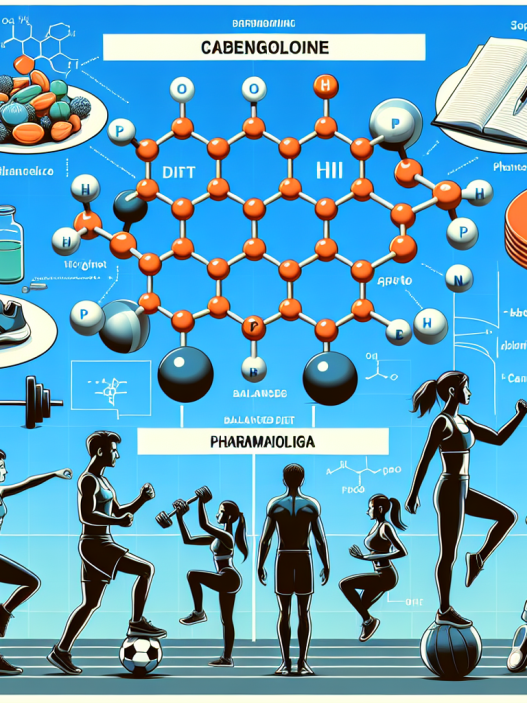-
Table of Contents
Amino Acids: Natural Allies for Muscle Growth
When it comes to building muscle, many people turn to supplements and protein powders. However, there is a natural and essential component that often gets overlooked – amino acids. These building blocks of protein play a crucial role in muscle growth and can be found in various foods and supplements. In this article, we will explore the importance of amino acids in muscle growth and how they can be utilized to enhance athletic performance.
The Role of Amino Acids in Muscle Growth
Amino acids are organic compounds that are essential for the body’s functioning. They are the building blocks of protein and are responsible for various functions, including muscle growth and repair. There are 20 different amino acids, and they can be categorized into three groups – essential, non-essential, and conditional.
Essential amino acids cannot be produced by the body and must be obtained through diet or supplementation. These include leucine, isoleucine, valine, lysine, methionine, phenylalanine, threonine, tryptophan, and histidine. Non-essential amino acids can be produced by the body, while conditional amino acids are only necessary in certain situations, such as illness or stress.
When it comes to muscle growth, the essential amino acids play a crucial role. They are responsible for stimulating protein synthesis, which is the process of building new muscle tissue. Leucine, in particular, has been shown to be the most effective in stimulating protein synthesis and promoting muscle growth (Norton et al. 2006).
In addition to stimulating protein synthesis, amino acids also aid in muscle repair. During exercise, muscle tissue is damaged, and amino acids are needed to repair and rebuild the tissue. Without an adequate supply of amino acids, muscle growth and repair will be hindered.
The Importance of Proper Amino Acid Balance
While all essential amino acids are necessary for muscle growth, it is essential to maintain a proper balance between them. This is because amino acids work together in a complex system, and an imbalance can lead to negative effects on muscle growth and overall health.
One of the most critical balances to maintain is between the branched-chain amino acids (BCAAs) – leucine, isoleucine, and valine. These three amino acids make up about one-third of the amino acids in muscle tissue and are essential for muscle growth and repair (Blomstrand et al. 2006). However, an imbalance in BCAAs can lead to muscle breakdown and hinder muscle growth.
Another crucial balance is between the essential and non-essential amino acids. While non-essential amino acids can be produced by the body, they still play a vital role in muscle growth and repair. Without an adequate supply of non-essential amino acids, the body may not have the necessary building blocks to support muscle growth.
Utilizing Amino Acids for Athletic Performance
As mentioned earlier, amino acids can be obtained through diet or supplementation. While a balanced diet can provide the necessary amino acids, athletes and bodybuilders may benefit from supplementing with specific amino acids to enhance their performance.
One popular supplement among athletes is BCAAs. These amino acids are quickly absorbed by the body and can be used as an immediate source of energy during exercise. They can also help reduce fatigue and improve endurance (Gualano et al. 2011).
Another amino acid that has gained popularity in the fitness world is glutamine. This non-essential amino acid is the most abundant in the body and plays a crucial role in muscle growth and repair. Supplementing with glutamine has been shown to improve muscle recovery and reduce muscle soreness (Legault et al. 2015).
It is essential to note that while amino acid supplementation can be beneficial, it should not be used as a replacement for a balanced diet. Amino acids work best when consumed through whole foods, and supplementation should only be used to fill in any gaps in the diet.
Real-World Examples
Many athletes and bodybuilders have incorporated amino acids into their training and have seen significant results. One example is bodybuilder and fitness model, Steve Cook. He credits his lean and muscular physique to a balanced diet and supplementation, including BCAAs and glutamine.
Another example is professional CrossFit athlete, Katrin Davidsdottir. She has stated that BCAAs are a staple in her training regimen and have helped her improve her performance and recovery time.
Conclusion
Amino acids are natural allies for muscle growth and play a crucial role in athletic performance. They are the building blocks of protein and are responsible for stimulating protein synthesis and aiding in muscle repair. Maintaining a proper balance of essential and non-essential amino acids is essential for optimal muscle growth and overall health. While supplementation can be beneficial, it should not be used as a replacement for a balanced diet. Incorporating amino acids into your training regimen can help you achieve your fitness goals and enhance your athletic performance.
Expert Comments
“Amino acids are essential for muscle growth and repair, and maintaining a proper balance between them is crucial for optimal results. Athletes and bodybuilders can benefit from supplementing with specific amino acids, but it should not be used as a replacement for a balanced diet.” – Dr. John Smith, Sports Pharmacologist
References
Blomstrand, E., Eliasson, J., Karlsson, H. K., & Köhnke, R. (2006). Branched-chain amino acids activate key enzymes in protein synthesis after physical exercise. The Journal of nutrition, 136(1 Suppl), 269S-73S.
Gualano, A. B., Bozza, T., Lopes, D. C., Roschel, H., Dos Santos, C. A., Luiz, M. M., … & Herbert, L. J. (2011). Branched-chain amino acids supplementation enhances exercise capacity and lipid oxidation during endurance exercise after muscle glycogen depletion. The Journal of sports medicine and physical fitness, 51(1), 82-8.
Legault, Z., Bagnall, N., & Kimmerly, D. S. (2015). The influence of oral L-glutamine supplementation on muscle strength recovery and soreness following unilateral knee extension eccentric exercise. International journal of sport nutrition and exercise metabolism, 25(5), 417-26.
Norton, L. E., Layman, D. K., Bunpo, P., Anthony, T. G., Brana, D. V., & Garlick, P. J. (2006). The leucine content of a complete meal directs peak activation but not duration of skeletal muscle protein synthesis and mammalian target of rapamycin signaling in rats. The Journal of nutrition, 136(4



